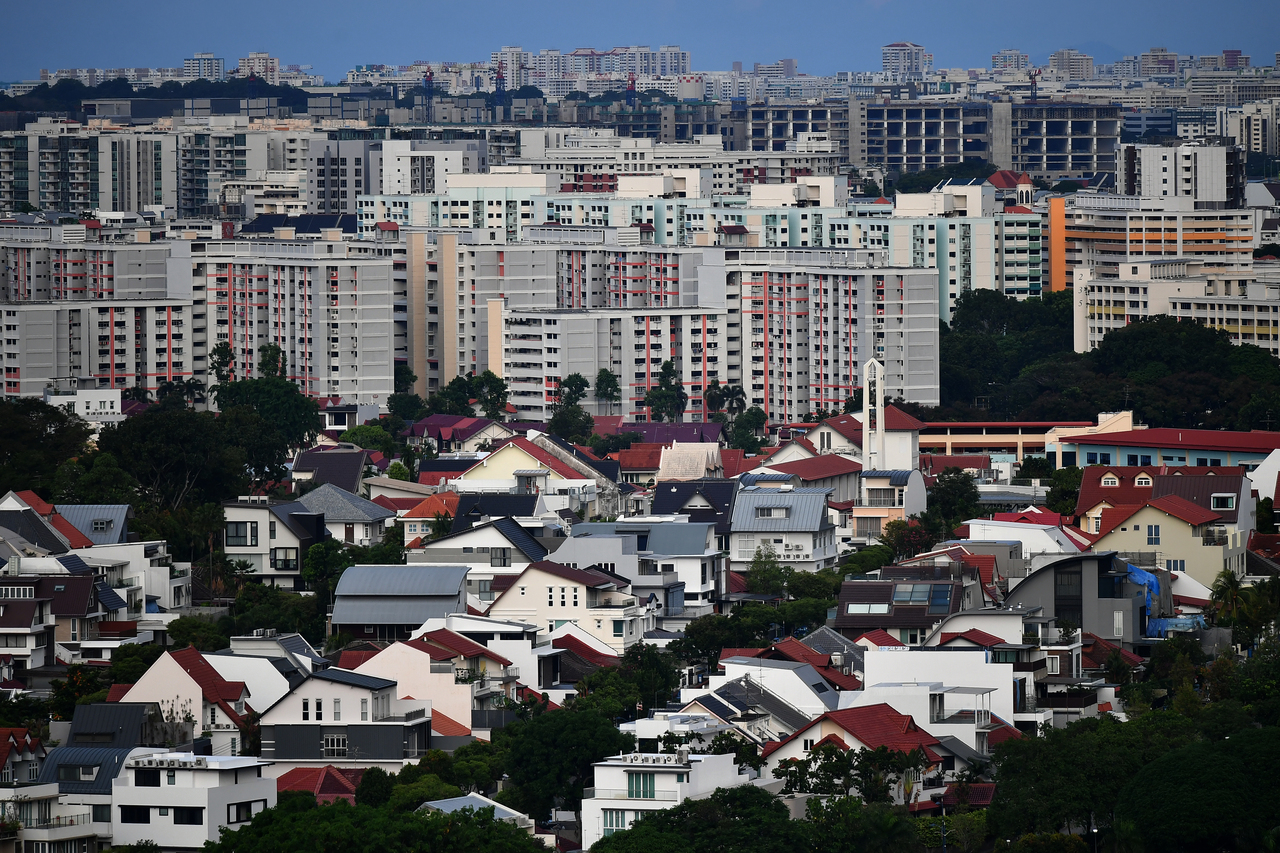Parliament: MPs urge Govt to look beyond housing value when means testing for financial aid
Sign up now: Get ST's newsletters delivered to your inbox

MPs urged the Government to review the criteria to ensure that Singaporeans living in private estates or bigger homes are not left out inadvertently.
PHOTO: ST FILE
Yuen Sin
Follow topic:
SINGAPORE - Some Singaporeans living in private estates or bigger homes may be severely affected by the Covid-19 crisis, but are unable to qualify for certain support schemes as eligibility is pegged to the annual value of the homes they live in.
Three MPs urged the Government on Monday (Aug 31) to review this criteria of means testing Singaporeans for financial aid to ensure these people are not left out inadvertently.
For instance, newly divorced Singaporeans, single parents returning to live with their elderly parents and soon-to-be-married children waiting to move into Build-To-Order flats under construction may not qualify for schemes like the Self-Employed Person Income Relief Scheme (Sirs) because of the criterion, Mr Christopher de Souza (Holland-Bukit Timah GRC) said during the debate on the President's Address.
He called for support schemes to assess eligibility based on home ownership, rather than the value and type of residence.
Sirs is open to those who earn a net trade income of no more than $100,000, live in a property with an annual value of no more than $21,000, and do not own two or more properties, among other criteria.
The scheme helps the self-employed who have been affected by the coronavirus pandemic. Those who do not meet the criteria can appeal to the authorities, which will assess their eligibility on a case-by-case basis.
Similarly, Mr Lim Biow Chuan (Mountbatten) said the policy of pegging social assistance to annual values of properties should be reviewed even as he agreed that the lower-income and the needy should get more help.
He pointed out that citizens suffering from loss of income may need help regardless of their housing type to pay for family expenses such as medical bills, mortgage instalments or school fees.
They may also not be able to sell their home during a financial crisis, he added.
"Why do we have the expectation that people don't deserve help simply because they have bigger homes? Should we not look at their loss of income? Should we also insist that these people must sell their homes before they get the short-term help specifically targeted at those affected by Covid-19?" he asked.
Mr Henry Kwek (Kebun Baru) said it would be timely for the Government to rethink its compact with citizens living in private estates, in the light of the pandemic.
He acknowledged that private estate residents have benefited from the ample opportunities offered in Singapore. But, he added, they have funded the lion's share of the country's tax revenue while consuming a limited amount of government aid.
"This is the right balance. As economic winners of our society, it is appropriate that they contribute to help the rest of Singapore move along."
Policies, however, may need to be adjusted for groups, including retired seniors who are asset-rich but cash-poor, and residents older than 50 who are facing uncertainty in their careers, he said.
Different yardsticks can be used to assess eligibility for support schemes, he added.
His proposals include using a combination of non-housing assets, income and the per capita housing equity of occupants in a house.
More schemes can also be created to help private estate residents who are asset-rich but cash-poor to better tap their housing equity, he added.
Mr Kwek suggested that the Government work actively with the banking and insurance sectors to create reverse mortgage options for private estates, and allow those who are older than 70 to borrow against their housing equity at a reasonable rate.
This can help residents who are opposed to selling their home because they do not want to be uprooted from a neighbourhood they have grown accustomed to.
It can also help older seniors who are not financially savvy enough to navigate the tricky global economic waters, he added.
While banks may have reservations about offering reverse mortgage to older seniors, the Government can explore mandating banks to allow residents to borrow against their housing equity if residents have given someone a Lasting Power of Attorney, said Mr Kwek.
This will ensure that a bank will have someone to work with, without resorting to expensive legal remedies in the event that the home owner falls ill or becomes mentally incapacitated.
"If our people can tap their housing equity effectively, I believe most Singaporeans in the private estates would prefer to stand on their own two feet, instead of relying on government assistance," he said.

